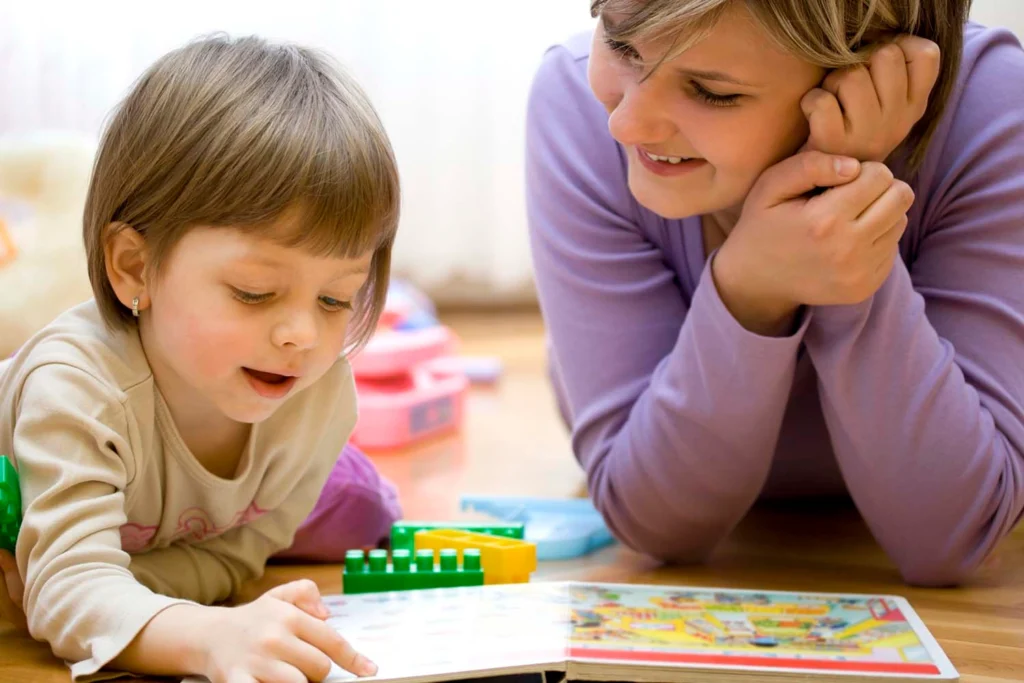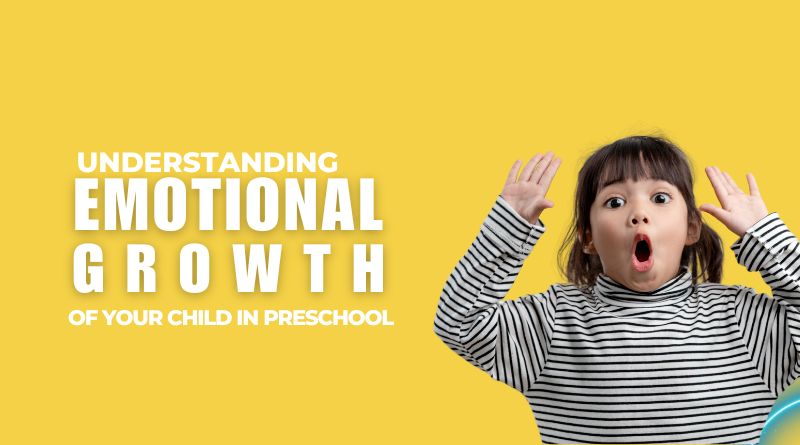Understanding the Emotional Growth of Your Child in Preschool
The early years of a child’s life are a time of rapid growth and development. Among the many aspects of a child’s development, emotional growth stands out as particularly crucial. This facet of development encompasses a child’s ability to experience, express, and manage their emotions, as well as understand and respond to the emotions of others. In the nurturing environment of a preschool, children take significant strides in their emotional growth. This blog post aims to guide parents and caregivers in understanding the emotional growth of their child in preschool.
I. Understanding Emotional Growth

Emotional growth, also known as emotional development, refers to the evolution of a child’s emotional capabilities. This includes their capacity to recognize and understand their own emotions, express these emotions in a healthy way, manage negative emotions, and develop empathy for others by understanding and responding to their emotions.
Emotional growth is a continuous process that begins in infancy and continues throughout a person’s life. However, the foundation of emotional growth is laid in the early years. During this time, children experience a wide range of emotions and begin to learn the skills to manage these emotions.
Understanding emotional growth involves recognizing the stages of emotional development. These stages are often linked to a child’s age, but it’s important to remember that every child is unique and may progress through these stages at their own pace.
II. The Role of Preschool in Emotional Growth

Preschool plays a pivotal role in a child’s emotional growth. It provides a structured environment where children can learn to interact with their peers and teachers, navigate social situations, and manage their emotions.
In preschool, children are exposed to a variety of social situations that challenge their emotional understanding and regulation. For instance, they learn to share toys with peers, follow rules, and participate in group activities. These experiences provide opportunities for children to practice and enhance their emotional skills.
A supportive and nurturing preschool environment, like that at Chulbul Preschool, can significantly enhance a child’s emotional development. At Chulbul Preschool, we understand the importance of emotional growth and strive to create an environment that fosters this growth. Our teachers are trained to recognize and respond to children’s emotions, guide children in managing their emotions, and model healthy emotional behavior.
III. Key Aspects of Emotional Growth in Preschool
Emotional growth in preschool involves several key aspects. These include self-awareness, empathy, emotional regulation, and social connections.
A. Self-awareness: Self-awareness refers to a child’s ability to recognize and understand their own emotions. In preschool, children learn to identify different emotions and link them to specific situations or triggers. This understanding forms the basis for other aspects of emotional growth, such as emotional regulation and empathy.
B. Empathy: Empathy involves understanding and sharing the feelings of others. In preschool, children begin to recognize that others also have feelings that might be different from their own. They learn to respond to these feelings in appropriate ways, such as comforting a peer who is upset.
C. Emotional regulation: Emotional regulation involves managing and controlling one’s emotions. In preschool, children learn strategies to cope with negative emotions, such as disappointment or anger. They also learn to express their emotions in appropriate ways.
D. Social connections: Social connections refer to the relationships that children form with their peers and teachers. These relationships provide a context for children to practice their emotional skills. They also contribute to children’s emotional well-being, as positive relationships can boost children’s self-esteem and sense of belonging.
IV. How Parents Can Support Emotional Growth at Home

While preschool plays a significant role in achild’s emotional growth, the home environment is equally important. Parents and caregivers can support their child’s emotional growth in several ways.
A. Encouraging expression of emotions: Parents can encourage their children to express their emotions freely. This can be done by acknowledging their feelings and validating their experiences. For instance, if a child is upset because they lost a game, a parent might say, “I understand that you’re upset because you didn’t win the game. It’s okay to feel disappointed.”
B. Modeling healthy emotional behavior: Children often learn by observing the adults around them. Parents can model healthy emotional behavior by expressing their own emotions in appropriate ways and managing their emotions effectively.
C. Providing a safe and supportive environment: A safe and supportive environment is one where children feel comfortable expressing their emotions without fear of judgment or punishment. Parents can create such an environment by being responsive to their children’s emotional needs and providing comfort and guidance when needed.
V. The Long-Term Benefits of Emotional Growth in Preschool

Emotional growth in preschool has long-term benefits that extend beyond the early years. These benefits include improved social skills, better academic performance, and enhanced mental health.
A. Improved social skills: Children who develop strong emotional skills are better able to interact with their peers and form positive relationships. They are more likely to show empathy towards others and engage in cooperative play.
B. Better academic performance: Emotional skills, such as the ability to manage negative emotions and persevere through challenges, can contribute to better academic performance. Children who can regulate their emotions are better able to focus on tasks and persist in the face of difficulty.
C. Enhanced mental health: Emotional growth contributes to mental health by equipping children with the skills to cope with negative emotions and stress. Children who can manage their emotions effectively are less likely to experience mental health issues such as anxiety and depression.
Understanding your child’s emotional growth in preschool is crucial. As parents and educators, our role is to provide a supportive environment that fosters this growth. By doing so, we can help shape emotionally intelligent individuals who are capable of navigating the world with empathy and resilience.
We’d love to hear your thoughts and experiences on this topic. For more insights on early childhood development, subscribe to our blog and stay tuned for our upcoming posts.




